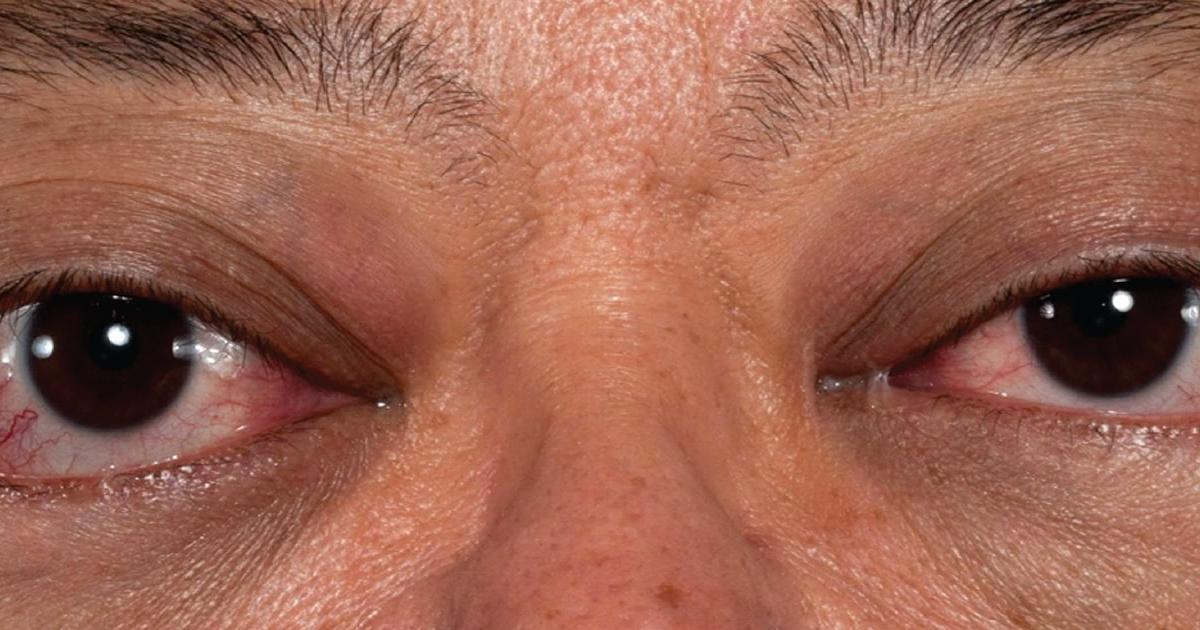Symptoms Of Graves' Disease
Thyroid conditions are very common in the general population, particularly among middle-aged women. Although conditions causing the thyroid to underperform (hypothyroidism) are more common, conditions in which the thyroid is too active (hyperthyroidism) do occur. Hyperthyroidism can be caused by several different conditions, including Graves' disease. Unfortunately, any thyroid condition can be difficult because the thyroid has multiple functions in the body and therefore can cause many different rather non-specific symptoms easily attributed to other causes. However, it is important to be properly diagnosed and treated for thyroid conditions because untreated conditions can significantly impair quality of life and in some cases can even lead to serious or fatal conditions.
Here are the most common symptoms of Graves' disease.
Bulging Eyes

Bulging eyes, commonly called Graves' ophthalmopathy, is a very obvious symptom present in around thirty percent of individuals with Graves' disease. Graves' disease is an autoimmune disorder where the immune system attacks the body. These attacks lead to excessive production of thyroid hormones and can also affect the muscles around the eyes, causing the eyes to bulge and protrude out of the eye sockets. The whites of the eyes appear to have enlarged due to the exposure caused by the bulging. In addition to bulging, the eyes may feel gritty, dry, and painful, and the eyelids may become puffy and red. The affected individual may experience light sensitivity and double vision. If untreated, there may be permanent vision loss.
Continue reading to reveal more symptoms of Graves' disease now.
Thick And Red Skin

Although not all patients with Graves' disease develop thick and red skin, this symptom is very specific to the disease. The skin over the tops of the shins and sometimes the feet thickens and becomes distinctly red in color. The thickening and redness may be spread uniformly or may be present in only patches scattered throughout the area. Oddly, only the skin on the shins and tops of the feet are affected by this peculiar symptom, which makes it so helpful in diagnosing Graves' disease; if a person presents with skin symptoms affecting other parts of the body, it is unlikely they have Graves' disease.
Get the full details on more symptoms associated with Graves' disease now.
Heart Palpitations

The excess thyroid hormones produced due to hyperthyroidism cause the heart to beat fast and to work very hard. Individuals with Graves' disease often report it feels like their heart is beating irregularly in addition to beating too fast, a symptom commonly referred to as heart palpitations. A physician can easily verify the patient's heart is beating quickly and irregularly by counting the pulse and listening to the heart with a stethoscope. Unfortunately, this symptom is found in all forms of hyperthyroidism and a number of other health conditions, so it is not specific for Graves' disease, but it can be used in the diagnostic workup.
Learn more about the warning signs of Graves' disease now.
Thyroid Gland Enlargement

Thyroid gland enlargement, usually referred to as a goiter, is a common symptom of many different thyroid conditions. Goiters frequently form in patients with Graves' disease and are referred to as diffuse thyrotoxic goiters. Large goiters can cause coughing, difficulty breathing while sleeping, and issues swallowing. The most common cause of a goiter is a lack of dietary iodine, but they can also form in response to hyperthyroidism, hypothyroidism, and also if a growth develops on the thyroid. Thus, the presence of a goiter indicates some form of thyroid dysfunction, but is not entirely specific to Graves' disease.
Discover more Graves' disease symptoms now.
Increased Heat Sensitivity

Individuals with hypothyroidism usually report feeling cold constantly, and not surprisingly, patients with hyperthyroidism report the opposite: increased heat sensitivity and feeling unpleasantly warm even when there is no environmental reason for such sensations. The affected individual may sweat a lot, have constantly moist skin, and be at higher risk of developing heat stroke in response to adverse weather conditions or intense exercise. This symptom is caused by the excess thyroid hormones accelerating the body's metabolism, which generates body heat and actually raises the patient's internal temperature. In response, the body works hard to maintain an appropriate body temperature by sweating. This symptom is quite specific to hyperthyroidism but not to Graves' disease, but is an important diagnostic clue.
